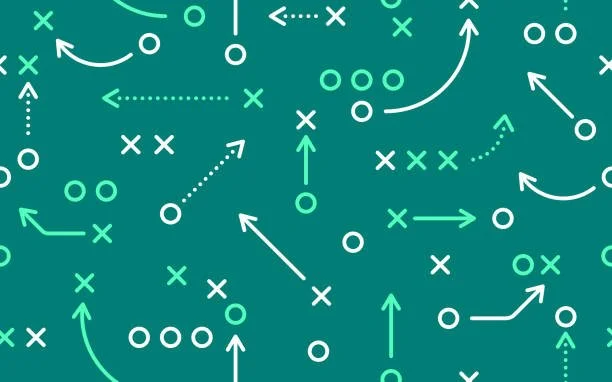Why You Can't Focus Anymore: The Information Overload Crisis
Picture representing the amount of information consumed
Originally from The Fruitful Three Show podcast with hosts Levi and Isaiah
How many tabs do you have open right now? How many notifications popped up on your phone while you've been reading this? Be honest.
We live in a world where the biggest problem isn't access to information anymore—it's survival through the noise. We're drowning in the sheer volume of information available, and it's time we talked about what this is doing to our minds, our relationships, and our ability to think clearly.
What Is Information Overload?
Information overload (also called "infobesity" or "infoxication") occurs when the quantity, frequency, or complexity of data exceeds a person's ability to process or make sense of it. It's not just about having too much information—it's about having too much irrelevant, contradictory, or poorly organized information when the signal-to-noise ratio is dangerously low.
The Psychological Effects
The consequences are real and measurable:
Decision paralysis - Too many choices making any decision harder
Stress and anxiety from constant information bombardment
Reduced quality of decisions due to mental fatigue
Diminished focus - Studies show people struggle to sit through full movies because they're conditioned for short clips
Serious cognitive fatigue that affects daily functioning
How Did We Get Here? A Brief History
The Evolution of Information Consumption
Word of Mouth Era: Information traveled slowly, was limited, and came from trusted sources in your immediate community.
Books and Print Era: Slow production, curated content, limited circulation. Interestingly, even then people worried about having too many books overwhelming their memory and time.
Television and Radio: Mass broadcast brought more content, but it was still scheduled and curated. People were passive consumers with limited control over their information diet.
The Internet Explosion: This is where things went off the rails. User-generated content everywhere, anytime access, search engines, forums, and blogs created unprecedented volume with wildly varying reliability. The internet as we know it didn't really become accessible to the general public until around 1990s.
Social Media: Constant feeds, immediate updates, pure information sharing—often completely unvetted. Push notifications attracting your attention, algorithms optimizing purely for engagement, not truth.
AI-Generated Content: We now face higher volumes of completely automated content, visuals, and videos that look stunningly real but may be complete fakes, synthetic voices, deepfakes, and low-cost production of potentially misleading content.
The pattern is clear: more volume, more speed, more sources, more automation, and exponentially increasing complexity in distinguishing what's credible and trustworthy.
Why This Is Dangerous
High-Risk Information Categories
Religion and Spiritual Beliefs: Subjective claims that are hard to fact-check, leading to the proliferation of contradictory belief systems.
Food and Nutrition: Rapidly shifting advice where small studies get hyped, creating conflicting claims. One day oats are good, the next day they're bad. The nuance gets lost in the noise.
Health and Medical Information: Natural doesn't always equal safe. Misleading claims can be literally harmful, especially when processed natural substances change their chemical properties.
DIY and Tutorial Content: While some tutorials are valuable, many are dangerously sloppy, have incomplete instructions, or are created more for attention than accuracy.
Fitness Information: Overclaimed benefits, unrealistic before-and-after photos, and one-size-fits-all approaches that ignore individual differences.
Podcasts: They seem authentic, so people assume credibility, but unverified statements can get passed as fact, and guest authority varies wildly.
Midwesteners: They know everything, just ask them. (This is a joke)
The Numbers That Will Shock You
Americans consume about 6 hours of content per day on average
Gen Z consumes closer to 6.6 to 7 hours daily
The average person is exposed to 34 to 74 gigabytes of data daily
Most people look at screens for 7+ hours per day
That's nearly a third of your waking hours spent consuming information.
How Information Overload Is Affecting You Right Now
Cognitive and Mental Effects
Mental load and decision fatigue - Too many choices making any decision harder
Reduced attention span - Difficulty concentrating deeply on important tasks
Memory issues - Harder to encode and recall information when overwhelmed
Confusion and uncertainty - Believing things that aren't actually real
Analysis paralysis - Delaying decisions indefinitely
Emotional and Psychological Impact
Anxiety and stress from feeling constantly overwhelmed
Burnout from constant information processing
Guilt - "Did I waste time? Did I miss something important?"
FOMO (Fear of Missing Out) creating constant anxiety
Decreased satisfaction and less peace of mind
Behavioral and Social Changes
More impulsive decisions because you can't weigh everything
Withdrawal - avoiding information sources or decisions altogether
Less critical thinking - easier to believe what's convenient or emotionally appealing
Spreading misinformation - people share without verifying
Social comparison - constantly comparing lives through social media
Productivity and Work Impact
Frequent interruptions reducing flow states
More time filtering irrelevant information instead of focusing on important work
Mistakes due to misinformation or misunderstood information
Reduced creativity - too much input, too little downtime for ideas to develop
Physical Health Consequences
Sleep disruption from late-night scrolling and stress
Eye strain and headaches from excessive screen time
Neglect of exercise and self-care due to information addiction
Stress symptoms like elevated heart rate and muscle tension
The Devil's Playbook: How Chaos Benefits Someone
Picture of playbook
When we zoom out, there's actually a strategy behind this chaos. Someone benefits when we're confused, distracted, and exhausted. Here's what a hypothetical "devil's playbook" for the information age might look like:
Flood them with volume - Make every channel so noisy that truth becomes just another shout in the crowd
Turn facts into fragments - Break stories into headlines, memes, and clips until no one remembers the context
Normalize instant judgment - Reward hot takes, punish thoughtful pauses
Weaponize ambiguity - Don't give one clear lie, give 10 half-truths so people pick whichever feels good
Prioritize emotional hooks - Outrage, fear, or delight clicks faster than accuracy
Split people into micro-tribes - Each convinced their filtered reality is the only one
Keep attention scattered - Switch topics so often that they forget how to think deeply
Make verification costly - Hide reliable sources behind paywalls, keep junk free
Civilize cynicism - Teach them everything's propaganda so they'll give up caring
Monetize outrage - Turn division into dollars
Sound familiar? This playbook is working in real-time around us.
8 Practical Solutions to Fight Back
1. Active Filtering
Unsubscribe from unnecessary email lists and newsletters
Unfollow social media accounts that create noise rather than signal
Turn off non-essential notifications
Use "Do Not Disturb" modes during focus times
Choose 2-3 trusted news sources instead of consuming from everywhere
2. Quality Over Quantity
Follow fewer, higher-quality sources rather than many mediocre ones
Prioritize expert-vetted content over random social media posts
Subscribe to curated newsletters that summarize rather than raw feeds
3. Set Boundaries and Time Limits
Schedule information consumption (check email/social media at 9 am, 1 pm, 5 pm)
Set daily limits: 30 minutes for news, 1 hour for social media
Use app timers to enforce these limits
Create information-free zones: no devices during meals or the first/last hour of day
4. Batch Processing
Handle similar tasks together (all emails at once, all news reading at once)
Avoid task switching between different information sources
5. Improve Your Media Literacy
Source Verification Always Ask:
Who wrote this, and what are their credentials?
Look for citations, references, and links to original studies
Cross-reference claims with multiple reputable sources
Be extra skeptical of content designed to make you emotional or angry
Red Flags for Credibility:
Clickbait headlines with emotional language
Claims that seem too good or too bad to be true
Content with no author listed or source cited
Information that confirms exactly what you want to hear
6. Use Helpful Tools and Resources
Technological Solutions:
Fact-checking websites like Snopes.org and Politifact
Browser extensions that flag questionable content
Platform features like Twitter/X Community Notes
News aggregators showing multiple perspectives, like AllSides or Ground News
Human Resources:
Discuss ambiguous claims with knowledgeable friends before sharing
Join communities focused on critical thinking
Ask experts in relevant fields when possible
7. Practice Slower, Deeper Thinking
The Pause Principle:
When something feels urgent or emotionally charged, stop
Wait 24 hours before sharing controversial content
Ask yourself: "Do I need to respond to this right now?"
Deep vs. Surface Reading:
Allocate time for longer-form content: books, in-depth articles
Read full articles, not just headlines
Take notes on important information to help with retention
Discuss what you've learned with others
8. Prioritize Mental Self-Care
Recognize Overload Symptoms:
Mental fatigue and difficulty concentrating
Feeling anxious about missing information
Decision paralysis or procrastination
Physical symptoms like headaches and sleep issues
Regular Digital Detoxes:
Take complete breaks from information consumption
Engage in offline activities: exercise, nature walks, hobbies
Practice mindfulness or meditation to reset your mental state
Get adequate sleep (information processing happens during rest)
The One Source Challenge
Here's your assignment for this week: Pick one source of information overwhelm in your life. Maybe it's:
Those YouTube subscriptions you never actually watch
The news app sending breaking news alerts every 30 minutes
The social media account that always leaves you feeling angry or inadequate, often leading to a state of doomscrolling.
The email newsletters you signed up for but never read
Choose just one and cut it out for the next seven days.
Track the Results: Journal a few sentences each day about how your focus and mood shift. Do you notice:
More presence in conversations?
Less anxiety?
Better concentration on important tasks?
Faster decision-making?
Remember This
You are not required to have an opinion on every topic or consume every piece of information available. Your attention is valuable—protect it like you would your money or time. Quality information that helps you make better decisions is worth infinitely more than massive quantities of random data.
The goal isn't to be uninformed. It's to be strategically informed. It's about choosing signal over static, substance over filler. If the devil's playbook is noise, then our defense is to be focused. If overwhelm is the weapon, then intentional curation is our shield.
Take back control of your information diet, and you'll regain control of your mind, your decisions, and ultimately your life.



